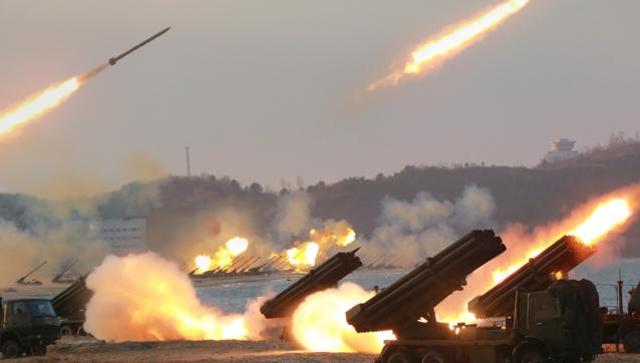North Korea has launched a ballistic missile toward the Sea of Japan, which reportedly landed in or near Japanese-controlled waters for the first time
North Korea has launched a ballistic missile toward the Sea of Japan, which reportedly landed in or near Japanese-controlled waters for the first time.  According to a statement released by the South Korea's Office of the Joint Chiefs of Staff, the missile was launched from a region in the North Korea’s South Hwanghae Province at around 7:50 a.m. local time on Wednesday (2250 GMT Tuesday).
According to a statement released by the South Korea's Office of the Joint Chiefs of Staff, the missile was launched from a region in the North Korea’s South Hwanghae Province at around 7:50 a.m. local time on Wednesday (2250 GMT Tuesday).
This is the fourth such missile launch in the past two weeks by Pyongyang in open defiance of the United Nations Security Council resolutions.
The projectile, appearing to be a Rodong-type medium-range missile, flew some 1,000 kilometers (621 miles) toward the waters off the North Korea’s east coast, the statement further said.
The launch showed Pyongyang’s ambition to “directly and broadly attack neighboring countries and target several places in the Republic of Korea such as ports and airfields,” it added.
According to Japan’s Defense Minister Gen Nakatani, the missile was estimated to have landed into Tokyo’s exclusive economic zone (EEZ), some 250 kilometers (155 miles) off its northern coast at 8:05 a.m. on Wednesday (2305 GMT Tuesday).
Japan was also quick to strongly denounce the move by its western neighbor.
"It's a serious threat against our country's security. This is an outrageous act that cannot be tolerated,” Japanese Prime Minister Shinzo Abe told reporters shortly after the launch.
Japanese Chief Cabinet Secretary Yoshihide Suga, the government’s top spokesman, also harshly slammed the move.
“There was no early warning. From the perspective of the safety of aircraft and ships, it is an extremely problematic, dangerous act. We immediately launched a strong protest against North Korea and condemned (the launch) in the strongest language” through diplomatic channels, he said.
The United States also issued a stern warning over the test fire, saying Washington is prepared to defend itself and its allies.
“We remain prepared to work with our allies and partners around the world to respond to further DPRK provocations, as well as to defend ourselves and our allies from any attack or provocation,” said State Department spokeswoman Anna Richey-Allen shortly after the test.
